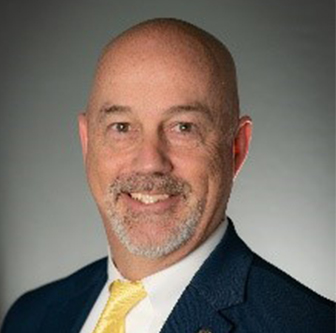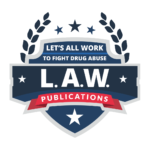
Article
2024 | SUMMER
Stairsteps to Professionalism
State Certification
Ed Densmore
Article
2024 | SUMMER
Stairsteps to Professionalism
State Certification

Ed Densmore
Law enforcement agencies and their leaders are experiencing greater levels of scrutiny than in any time in history. Elected and appointed leaders can no longer utilize a passive, reactive approach to managing their police departments. To ensure agencies’ practices can withstand this intense scrutiny, it is critical for police administrators to ensure their operational processes are functioning in accordance with established profession and legal standards. The Georgia Law Enforcement Certification Program is a voluntary and progressive program that is based on best practices. It enables law enforcement agencies and their chiefs to effectively evaluate and enhance their agency’s performance and standing in the community. The foundation of certification lies within the implementation of standards containing clear direction of professional objectives; it is about leadership, with the chief as the leader setting the standard for their team to follow and hold each other accountable.
Over the past few months, a comprehensive review and update of the program rules have been conducted. The State Certification Committee (SCC) has prepared a final draft of the updated version, which will be presented to the GACP Executive Board for final review and adoption. Once the Executive Board approves the updates, the updated program will be presented in upcoming training courses for certification managers, assessors, and team leaders.
All current assessors and team leaders will be required to attend this training and subsequently attend refresher training every two years to maintain their ability to serve as ambassadors for the program. Details on the training locations and curriculum will be announced via the GACP website, emails, and social media platforms for updated information.
In addition to updating the program rules, the forms used for certification are being updated to improve clarification of the process and application standards. The focus has been to not only update and improve the process but also to place the program in a better position for the future growth. Throughout this process, the focus was placed on a couple of key points within these updates: overall clarification of rules and consistency in the application of the rules – all without sacrificing the intent and integrity of the program.
Attaining or maintaining state certification provides agencies a number of benefits:
Confirmation that the agency’s practices are consistent with progressive professional and legal standards.
Enhanced operational and administrative effectiveness.
Increased understanding of agency policies and procedures.
Greater public confidence in the agency.
Recognition in the field for outstanding achievement.
Reduced liability potential.
Greater governmental and community support.
In addition, certified agencies receive a 20% reduction in liability insurance premiums through the Georgia Interlocal Risk Management Agency (GIRMA).
Police chiefs, city managers, and elected officials interested in participating in the program often have a lot of questions. We are a small community, can we become state certified? How do we get our agency started? How long does it take? What resources do I need for State Certification?
First, any agency, regardless of size, can become state-certified. Reynolds Police Department with seven full-time officers and Pine Mountain with nine full-time officers are excellent examples of small state-certified agencies. Once an agency commits to the process, the department must enter into an agreement with the Georgia Association of Chiefs of Police (GACP). Typically, the city management/elected officials will sign the agreement along with the police chief. Even though this may not be required of every agency, it is recommended police leaders have a discussion with their city management/elected officials and ensure they understand what the agency is moving towards and gain their support.
The next phase is the self-assessment that provides a three-year window to bring the agency into compliance with the program standards. For new agencies obtaining initial certification, they may elect to complete it in less than three years; but all subsequent cycles are for a period of three years. CALEA certified agencies are under a four-year cycle.
After completing the self-assessment, a team of two assessors is assigned to conduct an official review of the agency to ensure compliance with the program standards. Once the official review is completed, a formal report is sent to the state certification coordinator for presentation to the two approving committees – the State Certification Committee (SCC) and the Joint Review Committee (JRC). Upon approval, the agency is awarded Certification for a period of three years, or four years for CALEA certified agencies. It is strongly encouraged police leaders continue monitoring on-going compliance and documentation after they have been awarded certification, as the agency will be reviewed for to ensure on-going compliance on your annual cycle dates.

David Blake

Duane Wolfe

Guler Arsal

Joel Suss

Ed Densmore
Ed Densmore is the State Certification Manager for Georgia Law Enforcement Certification Program. He joined the Alpharetta Police Department in 1996 and rose through the ranks to Chief. Densmore was named Police Chief with the launch of the Johns Creek Police Department in 2008. He was appointed as the Johns Creek City Manager in March 2020. He holds a B.S. in Criminal Justice from Michigan State University and is a graduate of the Command College at Columbus State University, the FBI National Academy, FBI-LEEDS, and a GILEE graduate. In addition, he has served as a CALEA assessor for the past 20 years.












